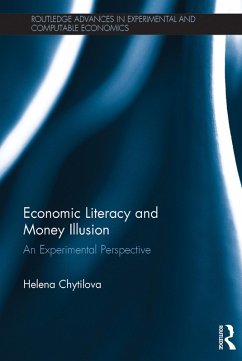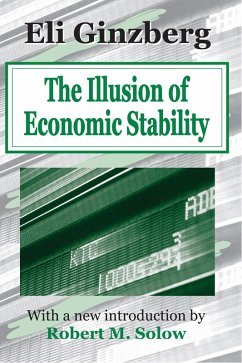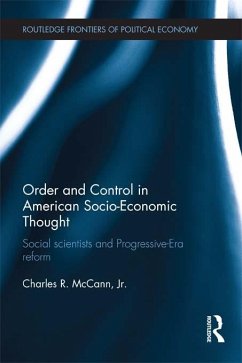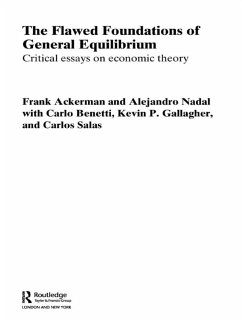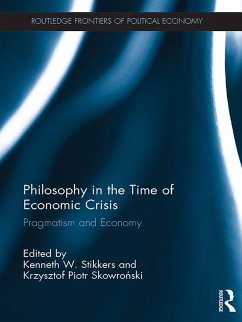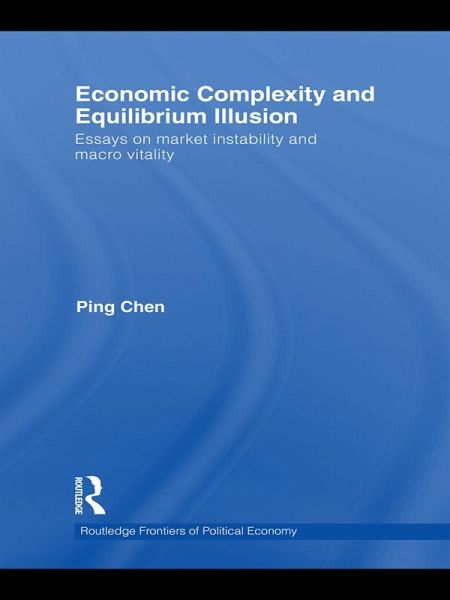
Economic Complexity and Equilibrium Illusion (eBook, ePUB)
Essays on market instability and macro vitality
Redaktion: Chen, Ping
Versandkostenfrei!
Sofort per Download lieferbar
55,95 €
inkl. MwSt.
Weitere Ausgaben:

PAYBACK Punkte
28 °P sammeln!
The Principle of Large Numbers indicates that macro fluctuations have weak microfoundations; persistent business cycles and interrupted technologies can be better characterized by macro vitality and meso foundations. Economic growth is limited by market extent and ecological constraints. The trade-off between stability and complexity is the foundation of cultural diversity and mixed economies. The new science of complexity sheds light on the sources of economic instability and complexity.This book consists of the major work of Professor Ping Chen, a pioneer in studying economic chaos and econo...
The Principle of Large Numbers indicates that macro fluctuations have weak microfoundations; persistent business cycles and interrupted technologies can be better characterized by macro vitality and meso foundations. Economic growth is limited by market extent and ecological constraints. The trade-off between stability and complexity is the foundation of cultural diversity and mixed economies. The new science of complexity sheds light on the sources of economic instability and complexity.
This book consists of the major work of Professor Ping Chen, a pioneer in studying economic chaos and economic complexity. They are selected from works completed since 1987, including original research on the evolutionary dynamics of the division of labour, empirical and theoretical studies of economic chaos and stochastic models of collective behavior. Offering a new perspective on market instability and the changing world order, the basic pillars in equilibrium economics are challenged by solid evidence of economic complexity and time asymmetry, including Friedman's theory of exogenous money and efficient market, the Frisch model of noise-driven cycles, the Lucas model of microfoundations and rational expectations, the Black-Scholes model of option pricing, and the Coase theory of transaction costs.
Throughout, a general theory based on complex evolutionary economics is developed, which integrates different insights from Marx, Marshall, Schumpeter, Keynes and offers a new understanding of the evolutionary history of division of labour. This book will be of interest to postgraduates and researchers in Economics, including macroeconomics, financial economics, advanced econometrics and economic methodology.
This book consists of the major work of Professor Ping Chen, a pioneer in studying economic chaos and economic complexity. They are selected from works completed since 1987, including original research on the evolutionary dynamics of the division of labour, empirical and theoretical studies of economic chaos and stochastic models of collective behavior. Offering a new perspective on market instability and the changing world order, the basic pillars in equilibrium economics are challenged by solid evidence of economic complexity and time asymmetry, including Friedman's theory of exogenous money and efficient market, the Frisch model of noise-driven cycles, the Lucas model of microfoundations and rational expectations, the Black-Scholes model of option pricing, and the Coase theory of transaction costs.
Throughout, a general theory based on complex evolutionary economics is developed, which integrates different insights from Marx, Marshall, Schumpeter, Keynes and offers a new understanding of the evolutionary history of division of labour. This book will be of interest to postgraduates and researchers in Economics, including macroeconomics, financial economics, advanced econometrics and economic methodology.
Dieser Download kann aus rechtlichen Gründen nur mit Rechnungsadresse in A, B, BG, CY, CZ, D, DK, EW, E, FIN, F, GR, HR, H, IRL, I, LT, L, LR, M, NL, PL, P, R, S, SLO, SK ausgeliefert werden.





